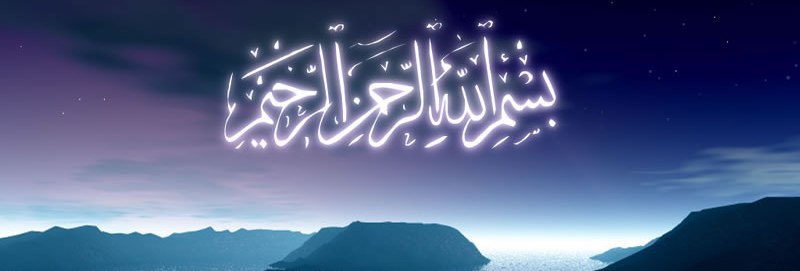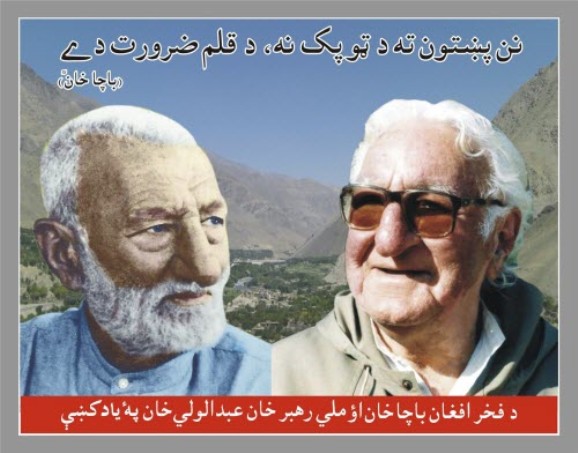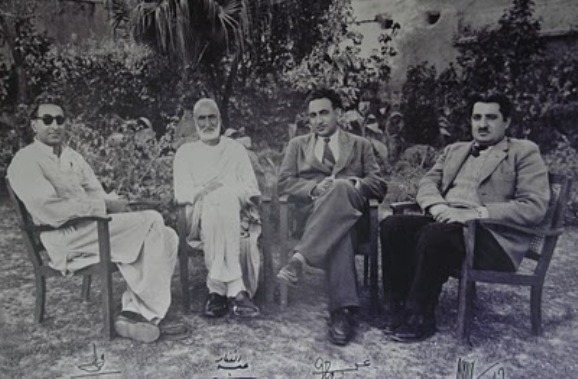The Pakhtun culture is reflected in Ghaffar Khan’s non-violent movement, in the mysticism of Rahman Baba’s poetry and in the romanticism of Ghani Khan’s poetry. This is a society that produced hundreds of anti-Taliban lashkar leaders all over Pakhtunkhwa who were target killed because they insisted that Talibanisation is the antithesis of
Pakhtun culture
Essentialism means that people have an intrinsic ‘essence’ that never changes. Social scientists agree that all human relations and activities that come under the socio-cultural realm are open to changes in accordance with the changing requirements of time and circumstances.
The Pakhtun have been assaulted with essentialism in literature and media. A latest example is Dr Ishtiaq Ahmed’s article ‘The 1947-48 Kashmir War’ (Daily Times, March 16, 2010). Dr Ahmed’s writes: “The tribal warriors quickly forgot the mission they were supposed to achieve, and succumbed prey to a vice deeply rooted in their culture and history — looting, pillaging and raping.” I was surprised to read these comments because recently he wrote another piece ‘Ghaffar Khan, Islam and non-violence’ (Daily Times, January 26, 2010) in which he says: “Those who want to find practical guidance on the Islamic philosophy of non-violence in contemporary times should study the life of Abdul Ghaffar Khan and the activities of the Khudai Khidmatgar movement.” The two articles leave one wondering what is Dr Ahmed’s real understanding of the Pakhtun culture, the one embodied by Ghaffar Khan and his mass-based movement or the “looting, pillaging, raping tribal warriors”, especially given the fact that Bacha Khan’s movement is well rooted in the tribal area?
I am not denying the fact that the tribal fighters did indulge in human rights violations in Kashmir. They should never have gone to Kashmir for that so-called jihad in 1947-48. It is also a fact that the entire tribal population of FATA never joined them. Only a tiny fraction of the population went for ‘jihad’. How can the activities of that fraction be labelled as ‘rooted’ in the culture of the entire population? Seemingly, many more Muslim Punjabis killed, pillaged and raped non-Muslim Punjabis and vice versa during the partition in 1947. I have yet to see any Pakhtun saying on a national level public forum like the Daily Times that all that savagery is rooted in the Punjabi culture.
Secondly, the tribesmen were encouraged and facilitated by the state to go to Kashmir for ‘jihad’. It was the responsibility of the state to have disciplined them. I am not ready to believe that indiscipline too is rooted in the Pakhtun culture. If so, how come the Pakistan Army has disciplined so many Pakhtun soldiers in their rank and file, including those from the tribal areas?
It is now well documented that soldiers of the Pakistan Army did commit rapes and murders during the 1971 crisis in the East Pakistan. But I have not come across any documents saying that the Pakhtun soldiers of the army ‘outshone’ their Punjabi colleagues on the occasion due to cultural reasons.
Some among the “looting, pillaging and raping” tribesmen were not averse to heed reason during the ‘jihad’, as indicated by Frank Leeson, a former khasadar officer (1945-47) in North Waziristan. He saw with his own eyes the tribesmen transported to Kashmir. In his book, Frontier Legion, he narrates this incident. Some tribal fighters, mostly Mehsud, attacked a convent. They were lining up the nuns for summary execution when another tribesman, a young Afridi officer of the Azad Kashmir Army, who had apparently been educated in a convent, rushed to the spot and argued with the Mehsuds to spare the lives of the nuns. Eventually, he managed to persuade the Mehsuds to leave the convent in peace.
Moreover, Frank Leeson also informs that the Faqir of Ipi, the man who led the resistance in Waziristan against the British in the 1930s and 40s, stopped the Waziri tribesmen from the Kashmir jihad, although some renegade Waziris did defy his instruction.
Raping can disrupt normal social and even economic life in any human society. Therefore, every society has laws and norms in place to stop it from occurring. It is certainly the case in the tribal culture. Even today, thousands of households in FATA do not have clean drinking water in or close to their houses. It is the young able-bodied women who fetch water every single day from sources in the mountains that may be several kilometres away from their homes. Like other parts of Pakistan, women in FATA too contribute in agriculture. Moreover, many men are labour migrants in Karachi or the Middle East, leaving behind women to run the households, which necessarily entails countless engagements in the public sphere. There are also tribal women who participate in the formal job market. How could women perform all those duties in the presence of a culturally rooted tradition of raping?
The Pakhtun culture is reflected in Ghaffar Khan’s non-violent movement, in the mysticism of Rahman Baba’s poetry and in the romanticism of Ghani Khan’s poetry. This is a society that produced hundreds of anti-Taliban lashkar leaders all over Pakhtunkhwa, including FATA, who were target killed because they insisted that Talibanisation is the antithesis of Pakhtun culture. This society produced hundreds of thousands of citizens, including the tribesmen and women, who are well integrated in the state structure of Pakistan. It is the same culture that has hundreds of thousands of hard working and law-abiding labour migrants abroad. Like any human society, the Pakhtun society is a mix of good and bad and so this is the society that produced Mullah Omar, Fazllullah, Baitullah and the whole lot of the Pakhtun Taliban and the tribal warriors of the Kashmir ‘jihad’. So my question is: what is the culture of the former group of people, if the activities of the latter group represent the ‘deep-rooted’ Pakhtun culture?
This article must not be seen as disrespect to Dr Ahmed. I believe his writing is an important contribution towards the much-needed deconstruction of the discourse of violent jihad and religious obscurantism in our country. I would just request him not to attribute essentialist ideas to the Pakhtun culture in the tribal or any other area of the land. Such essentialism demonises that society and contributes to justifying the ongoing killing of the Pakhtun.
The writer is a research fellow at the Centre for Interdisciplinary Gender Research, University of Oslo, and a member of Aryana Institute for Regional Research and Advocacy. She can be reached at bergen34@yahoo.com
Pakhtun culture
Essentialism means that people have an intrinsic ‘essence’ that never changes. Social scientists agree that all human relations and activities that come under the socio-cultural realm are open to changes in accordance with the changing requirements of time and circumstances.
The Pakhtun have been assaulted with essentialism in literature and media. A latest example is Dr Ishtiaq Ahmed’s article ‘The 1947-48 Kashmir War’ (Daily Times, March 16, 2010). Dr Ahmed’s writes: “The tribal warriors quickly forgot the mission they were supposed to achieve, and succumbed prey to a vice deeply rooted in their culture and history — looting, pillaging and raping.” I was surprised to read these comments because recently he wrote another piece ‘Ghaffar Khan, Islam and non-violence’ (Daily Times, January 26, 2010) in which he says: “Those who want to find practical guidance on the Islamic philosophy of non-violence in contemporary times should study the life of Abdul Ghaffar Khan and the activities of the Khudai Khidmatgar movement.” The two articles leave one wondering what is Dr Ahmed’s real understanding of the Pakhtun culture, the one embodied by Ghaffar Khan and his mass-based movement or the “looting, pillaging, raping tribal warriors”, especially given the fact that Bacha Khan’s movement is well rooted in the tribal area?
I am not denying the fact that the tribal fighters did indulge in human rights violations in Kashmir. They should never have gone to Kashmir for that so-called jihad in 1947-48. It is also a fact that the entire tribal population of FATA never joined them. Only a tiny fraction of the population went for ‘jihad’. How can the activities of that fraction be labelled as ‘rooted’ in the culture of the entire population? Seemingly, many more Muslim Punjabis killed, pillaged and raped non-Muslim Punjabis and vice versa during the partition in 1947. I have yet to see any Pakhtun saying on a national level public forum like the Daily Times that all that savagery is rooted in the Punjabi culture.
Secondly, the tribesmen were encouraged and facilitated by the state to go to Kashmir for ‘jihad’. It was the responsibility of the state to have disciplined them. I am not ready to believe that indiscipline too is rooted in the Pakhtun culture. If so, how come the Pakistan Army has disciplined so many Pakhtun soldiers in their rank and file, including those from the tribal areas?
It is now well documented that soldiers of the Pakistan Army did commit rapes and murders during the 1971 crisis in the East Pakistan. But I have not come across any documents saying that the Pakhtun soldiers of the army ‘outshone’ their Punjabi colleagues on the occasion due to cultural reasons.
Some among the “looting, pillaging and raping” tribesmen were not averse to heed reason during the ‘jihad’, as indicated by Frank Leeson, a former khasadar officer (1945-47) in North Waziristan. He saw with his own eyes the tribesmen transported to Kashmir. In his book, Frontier Legion, he narrates this incident. Some tribal fighters, mostly Mehsud, attacked a convent. They were lining up the nuns for summary execution when another tribesman, a young Afridi officer of the Azad Kashmir Army, who had apparently been educated in a convent, rushed to the spot and argued with the Mehsuds to spare the lives of the nuns. Eventually, he managed to persuade the Mehsuds to leave the convent in peace.
Moreover, Frank Leeson also informs that the Faqir of Ipi, the man who led the resistance in Waziristan against the British in the 1930s and 40s, stopped the Waziri tribesmen from the Kashmir jihad, although some renegade Waziris did defy his instruction.
Raping can disrupt normal social and even economic life in any human society. Therefore, every society has laws and norms in place to stop it from occurring. It is certainly the case in the tribal culture. Even today, thousands of households in FATA do not have clean drinking water in or close to their houses. It is the young able-bodied women who fetch water every single day from sources in the mountains that may be several kilometres away from their homes. Like other parts of Pakistan, women in FATA too contribute in agriculture. Moreover, many men are labour migrants in Karachi or the Middle East, leaving behind women to run the households, which necessarily entails countless engagements in the public sphere. There are also tribal women who participate in the formal job market. How could women perform all those duties in the presence of a culturally rooted tradition of raping?
The Pakhtun culture is reflected in Ghaffar Khan’s non-violent movement, in the mysticism of Rahman Baba’s poetry and in the romanticism of Ghani Khan’s poetry. This is a society that produced hundreds of anti-Taliban lashkar leaders all over Pakhtunkhwa, including FATA, who were target killed because they insisted that Talibanisation is the antithesis of Pakhtun culture. This society produced hundreds of thousands of citizens, including the tribesmen and women, who are well integrated in the state structure of Pakistan. It is the same culture that has hundreds of thousands of hard working and law-abiding labour migrants abroad. Like any human society, the Pakhtun society is a mix of good and bad and so this is the society that produced Mullah Omar, Fazllullah, Baitullah and the whole lot of the Pakhtun Taliban and the tribal warriors of the Kashmir ‘jihad’. So my question is: what is the culture of the former group of people, if the activities of the latter group represent the ‘deep-rooted’ Pakhtun culture?
This article must not be seen as disrespect to Dr Ahmed. I believe his writing is an important contribution towards the much-needed deconstruction of the discourse of violent jihad and religious obscurantism in our country. I would just request him not to attribute essentialist ideas to the Pakhtun culture in the tribal or any other area of the land. Such essentialism demonises that society and contributes to justifying the ongoing killing of the Pakhtun.
The writer is a research fellow at the Centre for Interdisciplinary Gender Research, University of Oslo, and a member of Aryana Institute for Regional Research and Advocacy. She can be reached at bergen34@yahoo.com







 5:37 AM
5:37 AM
 Muhammad Zai Khan
Muhammad Zai Khan







